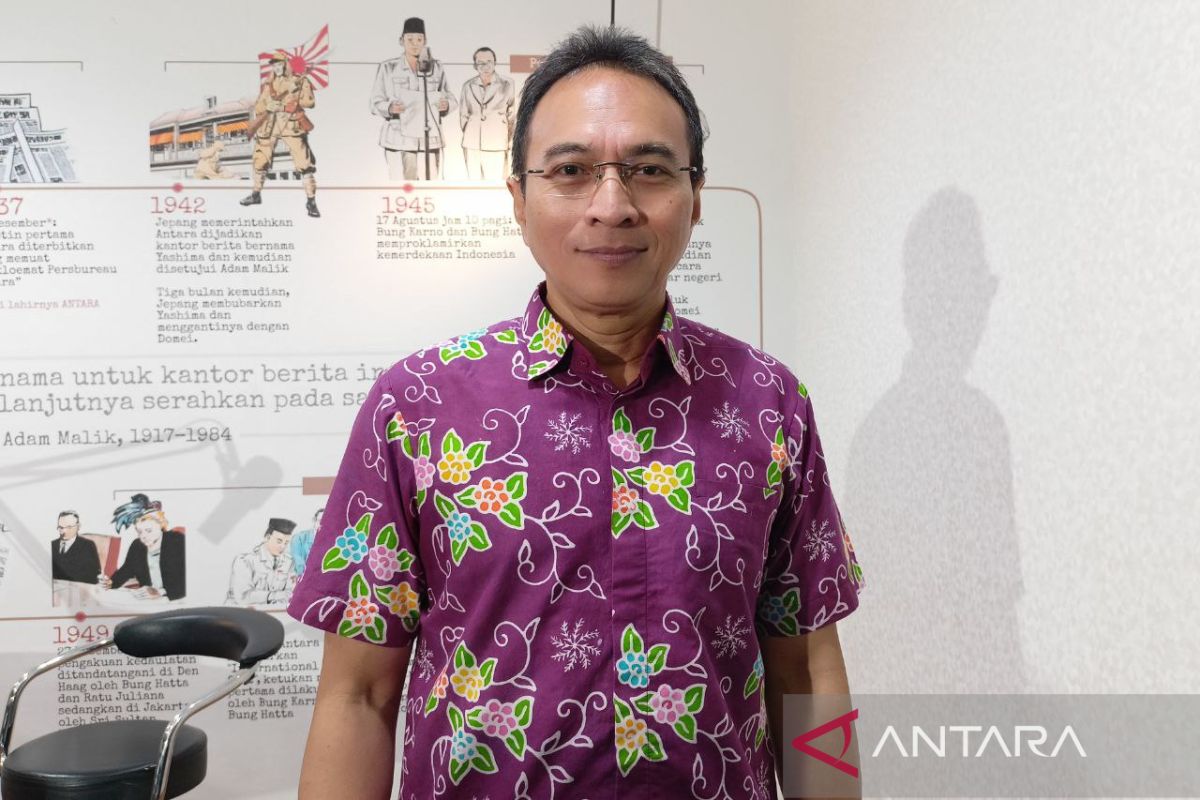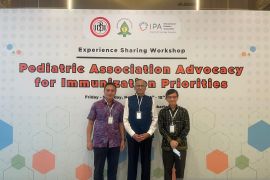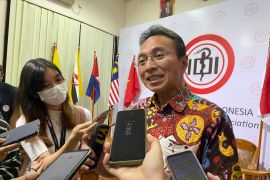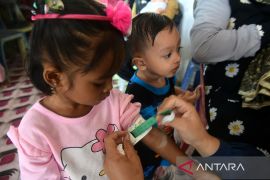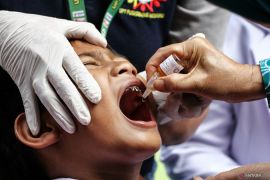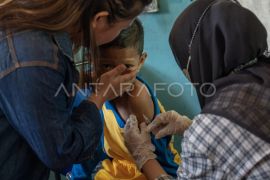In Indonesia, the initial immunization coverage is usually more than 90 percent but now, it has decreased to 80 percent. The coverage for older children's immunization is also even lowerJakarta (ANTARA) - Chairperson of the Indonesian Pediatrician Association (IDAI), Dr. Piprim Basarah Yanuarso, has asked citizens to not hesitate to give the polio vaccine to children as its side effect is much milder compared to contracting the poliovirus.
"The side effects of vaccines are much milder than polio," he said in Jakarta on Thursday.
He then outlined some side effects that may appear following polio vaccination, namely fever and swelling. However, these side effects are milder compared to a polio infection, which can leave a child paralyzed or dependent on a walking cane or wheelchair.
The IDAI also expressed concern over the discovery of a polio infection in a seven-year-old child, who suffered paralysis in his left leg, in Pidie district, Aceh.
The detection of the polio case has become an Extraordinary Event (KLB) since Indonesia has been free from polio for a long time and received an official certificate from the World Health Organization (WHO) in 2014.
Yanuarso said that outbreaks could recur if immunization coverage is low. Therefore, it is important to increase immunization coverage in all regions.
The decline in routine immunization coverage has also been affected by the COVID-19 pandemic, which has made people reluctant to gather in crowds, he added.
"In Indonesia, the initial immunization coverage is usually more than 90 percent but now, it has decreased to 80 percent. The coverage for older children's immunization is also even lower," he informed.
Related news: IDAI, RSCM conducting research on using ethanol as AKI antidote
In addition, misinformation circulating on social media has led people to doubt vaccinations, he said.
"People are doubtful about vaccines, but not worried about the disease," he pointed out.
He emphasized that immunization is a child's human right that must be upheld by parents. Vaccinations are being provided free of charge by the government, he noted.
He urged parents to get their children immunized at the nearest health facilities without delay in order to protect them from diseases, including polio.
For people who are doubtful because they are considering the halalness of the vaccine, he said the MUI Fatwa has stated that the immunization program is legally mandatory.
Related news: IDAI links acute kidney injury with cost-cutting by pharma cos
In addition, there is an emergency concept that applies to scenarios where not providing a vaccine can cause disability or death.
"So, even if the vaccine has not received a halal certificate, when the disease that causes death or disability occurs, the immunization must be given," he emphasized.
In addition to vaccination, the effort to prevent polio requires the adoption of a clean and healthy lifestyle by the community.
Related news: New polio infections highlight importance of immunization: IDAI
Related news: Pharmaceutical drugs are last resort in treating children's illnesses
Translator: Nanien Yuniar, Resinta S
Editor: Fardah Assegaf
Copyright © ANTARA 2022
